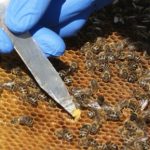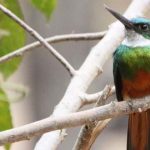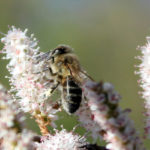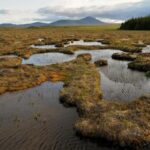Honeybees are struggling to get enough good bacteria
Modern monoculture farming, commercial forestry and even well-intentioned gardeners could be making it harder for honeybees to store food and fight off diseases, a...
Primary tropical forests are best but regrowing forests are also vital to biodiversity
Even after 40 years of recovery, secondary forests remain species and carbon-poor compared to undisturbed primary forests, a new study reveals.
However these secondary forests...
New research reveals the science behind ocean currents
New research has revealed how currents deep on the ocean floor are able to travel thousands of miles.
The team of scientists examined giant density-driven...
Using weather radar to monitor insects
Scientists are developing a pioneering technique that allows them to monitor insects in the air using weather radars, as part of a research project...
Gender Neutral Robots: 80% of Brits say yes!
Technology is advancing at a rate that a decade or two ago would have been unbelievable, robotic help is now upon us.
Seven in ten...
Scientists discover the first pulsating remains of a star in an eclipsing double star...
Scientists from the University of Sheffield have discovered a pulsating ancient star in a double star system, which will allow them to access important...
Earliest art in British Isles discovered in Jersey
For the first time, archaeologists have analysed the ancient markings made on a group of flat stones, known as plaquettes, uncovered at Les Varines,...
We simply can’t afford for peatlands to go up in smoke
Preserving the world's peatlands – and the vast carbon stores they contain – is vital to limiting climate change, researchers say.
The study, led by the...
Study finds rapid evolution in foxgloves pollinated by hummingbirds
Common foxgloves taken to the Americas 200 years ago have evolved to change flower length in the presence of a new pollinator group, hummingbirds.
Researchers...
Llama antibodies have “significant potential” as potent COVID-19 treatment
A unique type of tiny antibody produced by llamas could provide a new frontline treatment against Covid-19 that can be taken by patients as...










